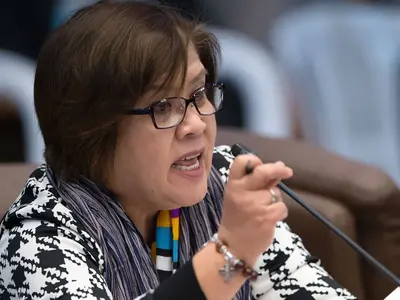
HOUSE Committee on Labor and Employment Chairperson and Cavite 1st District Rep. Ramon Jolo Revilla III has revealed that while Metro Manila (NCR) boasts the highest minimum wage rates in the country, neighboring provinces such as Bulacan, Cavite, Laguna, and Rizal all report higher poverty thresholds—indicating that the cost of basic survival is actually more expensive outside the capital.
Citing official data from the Philippine Statistics Authority (PSA), Revilla noted that in 2023, the Annual Per Capita Poverty Threshold in Metro Manila was ₱37,711, while Bulacan reached ₱39,202, Cavite ₱39,165, Laguna ₱38,492, and Rizal ₱39,055. These translate to monthly survival thresholds for a family of four ranging from ₱12,831 to ₱13,131—all higher than NCR’s ₱12,570.31.
“Marami ang naniniwala na ang Maynila ang pinakamahal tirhan, pero ayon sa opisyal na datos ng PSA, mas mataas na ang gastos ng pamumuhay sa Cavite, Laguna, Bulacan, at Rizal kaysa sa NCR. Ibig sabihin, kahit mas mataas ang sahod sa Maynila, mas nahihirapan ang mga manggagawa sa labas ng NCR,” Revilla said.
The lawmaker made the statement during the September 10 public hearing of the House Committee on Labor and Employment, which he presided over.
The hearing tackled critical measures aimed at improving wage fairness and employment access, including House Resolution No. 232—authored by Revilla—urging the Regional Tripartite Wages and Productivity Boards (RTWPBs) to immediately act on all pending wage hike petitions per region.
Revilla emphasized the absurdity of the current system where people who live and work just a few meters apart receive vastly different wages simply because they fall under separate administrative regions.
“Kung minsan, isang traffic light lang ang pagitan o isang tulay lang ang border ng Metro Manila at Cavite o Bulacan—pero magkaiba na agad ang minimum wage. That doesn’t make sense. You have two people doing the same work, spending on the same goods, but receiving different pay just because of geography,” he observed.
The committee also deliberated on a range of bills that aim to improve job matching and strengthen labor protections, including the creation of barangay and national employment registries (via HB 481 and HB 4081), and expanded protections against workplace discrimination (via HBs 257 & 2228).
Revilla said the PSA data confirms what many workers have long felt: that the minimum wage in their province does not match the actual cost of living. He explained that rising prices of food, housing, and transport in these fast-urbanizing areas are no longer being offset by wage increases, leaving many families earning below what is needed for basic survival.
“Kung ang sahod ay hindi sumasapat para abutin ang poverty threshold ng isang pamilya, then the wage is not livable. And if it’s not livable, it must be reformed. This is the heart of our call for regional wage justice,” he said.
He urged fellow lawmakers and national agencies to respond decisively, not only through immediate wage adjustments, but through long-term reforms that align wages with the evolving economic geography of the country.
“Our goal is not just to raise wages, but to correct the unfairness in how we value work depending on a person’s address. Kapag ang tanging pagkakaiba ng sahod ay ang lokasyon ng bahay mo, at hindi ang uri ng trabaho mo, may mali na sa sistema,” Revilla concluded.



